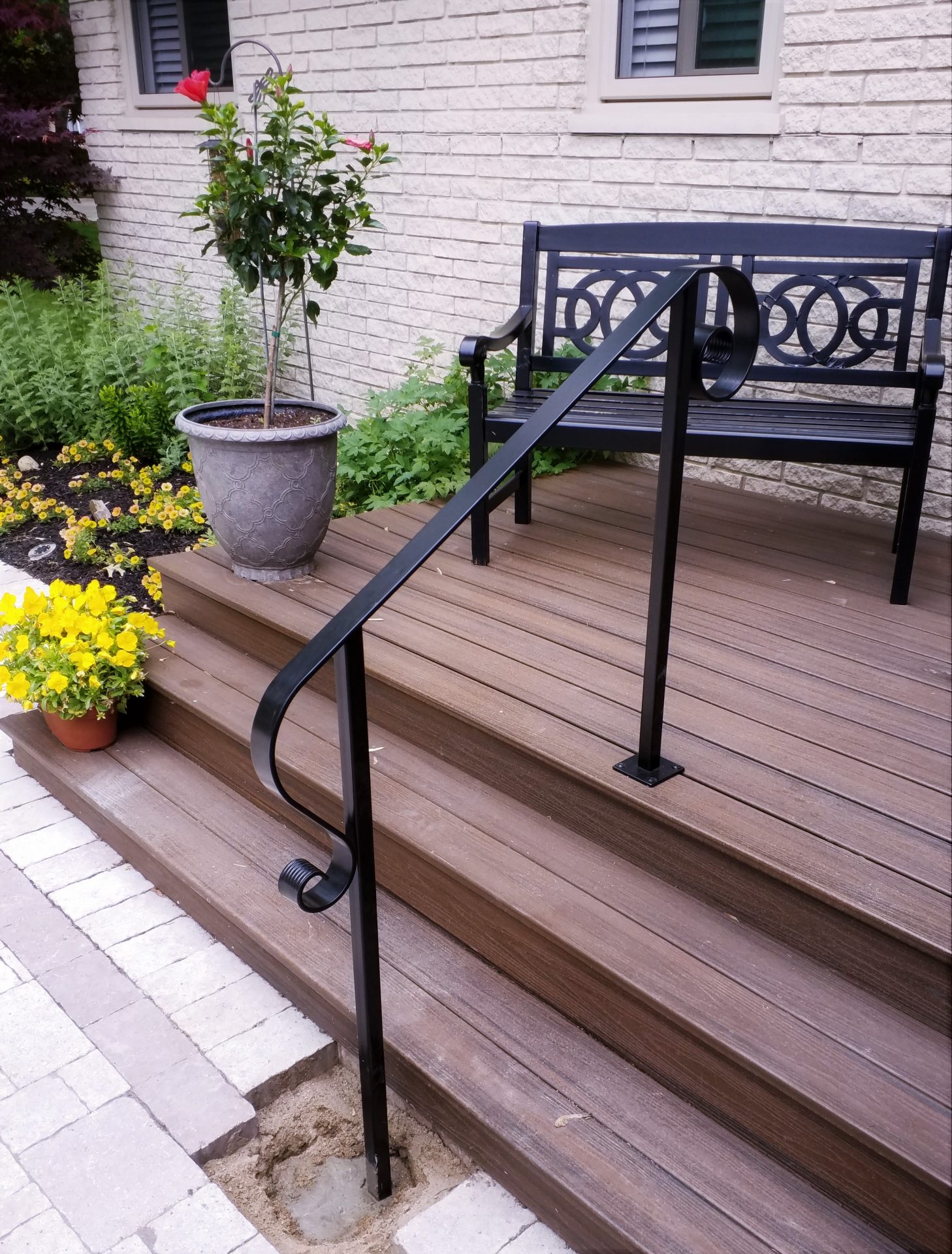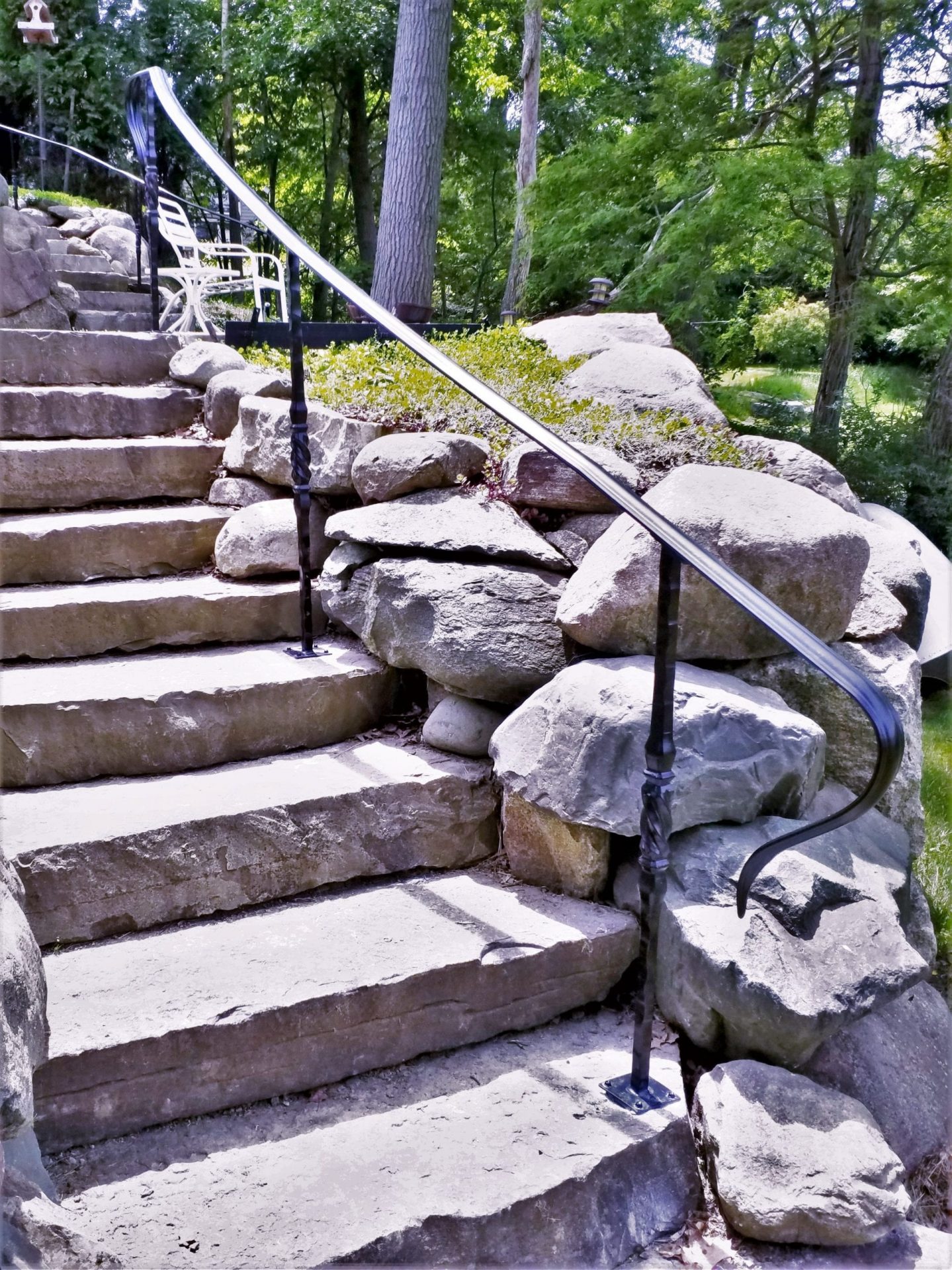When it comes to the aesthetics of your home, decorative handrails for steps can be a game-changer. Not only do they provide safety, but they can also elevate the overall design of your space. Drawing from personal experience and extensive research, this guide will help you explore the various aspects of choosing the right decorative handrails.
Understanding Decorative Handrails
Decorative handrails serve both functional and aesthetic purposes. They provide support and guidance while also enhancing the visual appeal of your stairs. Let’s look deeper into different types of handrails and their characteristics.
What Are Decorative Handrails?
Decorative handrails are designed with both beauty and utility in mind. Unlike standard handrails, these add a touch of elegance to your staircase while ensuring safety during use.
Benefits of Decorative Handrails
- Improve safety
- Enhance the aesthetic appeal of your home
- Add value to your property
- Wide variety of materials and designs
Types of Decorative Handrails
Material Options
The material of your handrail can significantly impact its design and durability. Here are some popular options:
- Wood: Offers warmth but requires regular maintenance.
- Metal: Comes in various styles, is durable, and usually requires minimal upkeep.
- Glass: Provides a modern look and maximizes light but may not be suitable for every home style.
- Composite: A blend of plastic and wood fibers, offering durability and a wood-like appearance.
Styles of Decorative Handrails
Handrail styles can drastically alter the feel of your space. Here are some popular decorative styles:
- Classic: Ornate designs often seen in traditional homes.
- Modern: Sleek, minimalistic lines that create a contemporary look.
- Rustic: Made from natural materials, perfect for a cottage or farmhouse style.
- Industrial: Features raw materials like metal and wood, suitable for urban settings.
Choosing the Right Decorative Handrail
Choosing the right handrail involves several considerations to ensure it meets your needs and complements your home’s style.
Factors to Consider
1. Safety Regulations
Before selecting handrails, familiarize yourself with local building codes and safety regulations.
2. Design Aesthetics
Consider how the handrail will fit into your existing décor. Match the style and color with your home’s theme.

3. Maintenance Requirements
Evaluate how much maintenance you are willing to commit to. Materials like metal or composite typically require less care than wood.
4. Budget
Handrails come in a range of prices. Set a budget that accommodates both materials and installation costs.

Installation of Decorative Handrails
Installing decorative handrails can be a DIY project or a job for a professional. Here’s a quick guide to both methods:
DIY Installation Tips
- Gather necessary tools and materials.
- Follow the manufacturer’s installation instructions carefully.
- Ensure the handrail is securely attached and meets safety standards.

Hiring a Professional
If you’re not comfortable with DIY installations, hiring a professional can ensure that the job is done correctly. Look for qualified contractors with experience in handrail installations.
Maintenance of Decorative Handrails
Proper maintenance of your decorative handrails is essential for longevity and appearance.

General Care Guidelines
- Regularly clean handrails with appropriate cleaners based on the material.
- Inspect for loose fittings or damages periodically.
- Repaint or refinish as necessary to maintain appearance.
Material-Specific Maintenance
Wood
Inspect for signs of wear, treat with a wood conditioner, and reapply stain or paint every few years.

Metal
Wipe down with a damp cloth and check for rust regularly. Use rust-inhibiting spray if necessary.
Glass
Use glass cleaner to maintain clarity and inspect for cracks or chips.

Comparing Decorative Handrail Options
The following table provides a quick comparison of different materials and styles:
| Material | Pros | Cons |
|---|---|---|
| Wood | Warm appearance, customizable | Requires regular maintenance, can rot |
| Metal | Durable, available in many styles | Can be cold to the touch, may rust |
| Glass | Modern aesthetic, unobtrusive | Can be expensive, needs regular cleaning |
| Composite | Low maintenance, eco-friendly | Limited style options, can fade over time |
Pros and Cons of Decorative Handrails
Advantages
- Increased safety for all age groups
- Stylish addition to your home
- Can increase property value

Disadvantages
- Can be costly depending on material and design
- May require regular upkeep based on material choice
Frequently Asked Questions (FAQs)
What materials are best for decorative handrails?
The best material depends on your style preference, budget, and maintenance willingness. Metal and composite usually offer durability, while wood provides warmth and customization.
Are decorative handrails safe?
Yes, when installed correctly, decorative handrails provide essential support and meet local building codes for safety.
How much does it cost to install decorative handrails?
Costs can vary widely based on material, style, and labor. A basic estimate can range between $100 to $500 per linear foot, excluding installation.
Can I install handrails myself?
Yes, if you have the right tools and follow installation guidelines. However, hiring a professional ensures proper installation.
How often should I maintain my handrails?
Check and clean your handrails at least once a year. Wood may need refinishing every few years, while metal and glass require periodic cleaning.